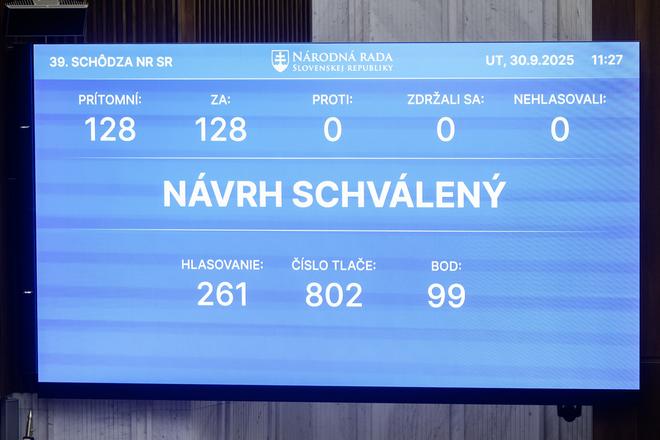Slovakia’s parliament has amended its controversial transaction tax, removing the obligation for self-employed people but keeping companies in the net. From January, only firms will have to pay the 0.4 percent levy on electronic transfers (capped at €40 per payment). Cash payments remain exempt.
The change was pushed through by MPs from the Slovak National Party with support from coalition partners Hlas and Smer. Opposition MPs criticised the move for being rushed and poorly explained.
Limited relief for freelancers
The amendment brings partial relief for sole traders. Many already avoided the tax through flat-rate accounting, so the change mainly benefits those who deduct actual expenses. An earlier plan to exempt small firms with turnover under €100,000 was dropped as unworkable.
The 16-day rule for foreign firms
A key provision concerns foreign businesses. Any company or freelancer active in Slovakia for at least 16 days in a month will now be treated as having a permanent establishment here and must pay the tax. This could include construction projects, branch offices or even e-shops using a Slovak “.sk” domain. Activity of 15 days or fewer in a month remains outside the scope.
Exemptions and grey areas
The law lists public institutions exempt from the tax, including Sociálna poisťovňa (the Social Insurance Agency), the Slovak Academy of Sciences, councils, charities and schools. But private schools remain divided: some are classed as non-profits and exempt, while others charging tuition are treated as businesses.
Experts unconvinced
Tax advisers say the reform fails to address the biggest distortion: cash is untaxed, while electronic payments are not. Since April, many firms have increased their use of cash, pushing more money into the grey economy.
Hungary is the only other EU country with such a levy. Critics argue Slovakia’s complex system, high labour costs and exemptions already drive businesses towards aggressive tax planning — and the transaction tax only makes this worse.


